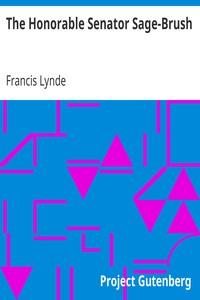Read this ebook for free! No credit card needed, absolutely nothing to pay.
Words: 117377 in 43 pages
This is an ebook sharing website. You can read the uploaded ebooks for free here. No credit cards needed, nothing to pay. If you want to own a digital copy of the ebook, or want to read offline with your favorite ebook-reader, then you can choose to buy and download the ebook.


: An Inquiry into the Permanent Causes of the Decline and Fall of Powerful and Wealthy Nations. Designed To Shew How The Prosperity Of The British Empire May Be Prolonged by Playfair William - Economics; History Philosophy; Great Britain Economic conditions
to operate on some; when the adventitious causes of wealth and power, producing conquest, began to establish a new order of things.
The second period, from the fall of the Roman government till the discovery of America, and the passage to the East Indies, by the ocean, has likewise a distinct feature, and is treated of by itself.
The rulers of mankind were not then men, who from the ease and leisure of pastoral life, under a mild heaven, had studied science, and cultivated the arts; they were men who had descended from a cold northern climate, where nature did little to supply their wants, where hunger and cold could not be avoided but by industry and exertion; where, in one word, the sterility of nature was counteracted by the energy of man.
The possessors of milder climates, and of softer manners, falling under the dominion of such men, inferior greatly in numbers, as well as in arts, intermixed with them, and formed a new race, of which the character was different; and it is a circumstance not a little curious, that while mankind were in a state at which they had arrived by increasing population, and by the arts of peace, slavery was universal: but that when governed by men who were conquerors, and owed their superiority to force alone, where slavery might have been expected to originate, it was abolished.
The progress towards wealth in this new state of things was very slow, but the equality that prevailed amongst feudal barons, their love of war and glory, and the leisure they enjoyed, by degrees extended the limits of commerce very widely, as the northern world never could produce many articles which its inhabitants had by their connection with the south learnt to relish and enjoy.
The intermediate countries, that naturally formed a link of connection between the ancient nations of the east and the rough inhabitants of the north, profited the most by this circumstance; and we still find the borders of the Mediterranean Sea, though no longer the seat of power, the places where wealth was chiefly concentrated.
The impossibility of the inhabitants of the northern countries transporting their rude and heavy produce, in order to exchange it for the luxuries of the south, gave rise to manufactures as well as fishing on the southern confines of the Baltic Sea; from whence arose the wealth of Flanders, Holland, and the Hans Towns. This forms an epoch entirely new in its nature and description, and its termination was only brought on by the great discovery of the passage to Asia, by the Cape of Good Hope, and to America, by sailing straight out into the Atlantic Ocean.
The nations that had till those discoveries been the best situated for commerce no longer enjoyed that advantage; by that means it changed its abode; but not only did it change its abode, it changed its nature, and the trifling commerce that had hitherto been carried on by the intervention of caravans by land, or of little barks coasting on the borders of the Mediterranean Sea, was dropt for that bold and adventurous navigation, connecting the most distant parts of the world; between which since then large vessels pass with greater expedition and safety than they formerly did between the Grecian Islands, or from Italy to Africa.
Three inventions, two in commerce and the other in war, nearly of equal antiquity, formed this into one of these epochs that gives a new feature to things.
The discovery of the magnetic power of the needle improved and totally altered navigation. The art of printing gave the means of extending with facility, to mankind at large, the mode of communicating thoughts and ideas, which had till then been attended with great difficulty, and confined to a few. This placed men nearer upon an equality with respect to mind, and greatly facilitated commerce and the arts. The invention of gun-powder nearly at the same time changed the art of war, not only in its manner, but in its effect, a point of far greater importance. While human force was the power by which men were annoyed, in cases of hostility, bodily strength laid the foundation for the greatness of individual men, as well as of whole nations. So long as this was the case, it was impossible for any nation to cultivate the arts of peace, , without becoming much inferior in physical force to nations that preferred hunting or made war their study; or to such as preferred exercising the body, as rude nations do, to gratifying the appetites, as practised in wealthy ones. To be wealthy and powerful long together was then impossible.
Since this last invention, the physical powers of men have ceased to occupy any material part in their history; superiority in skill is now the great object of the attainment of those who wish to excel, and
men may devote themselves to a life of ease and enjoyment without falling under a real inferiority, provided they do not allow the mind to be degraded or sunk in sloth, ignorance, or vice.
Free books android app tbrJar TBR JAR Read Free books online gutenberg
More posts by @FreeBooks


: The Honorable Senator Sage-Brush by Lynde Francis - Fathers and sons Fiction; Political fiction; West (U.S.) Fiction






